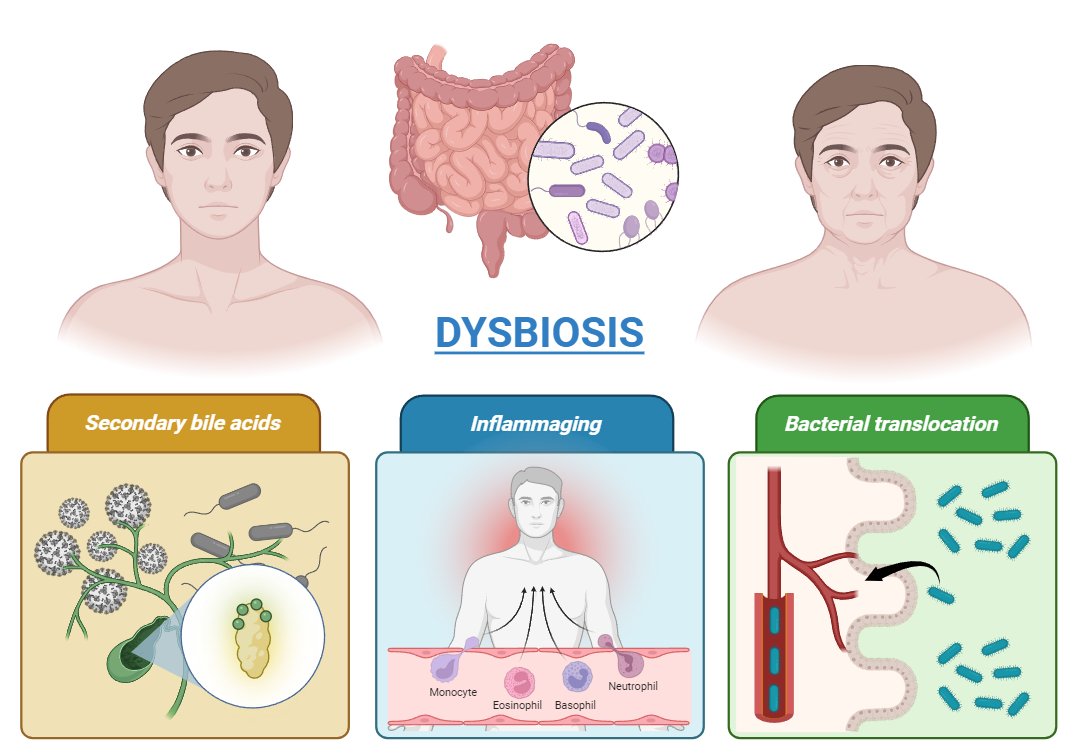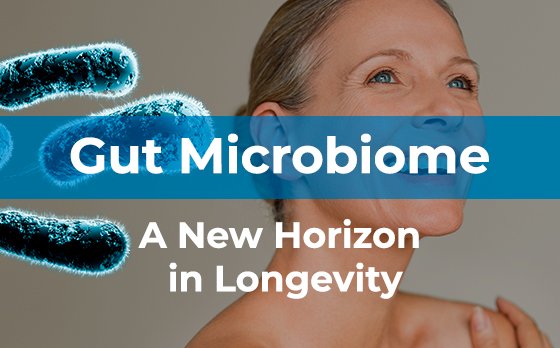Aging has long been a biological enigma, but recent research has revealed a new player in this process: the gut microbiome. For years, the scientific community has studied the impact of DNA, metabolism, and the immune system on longevity, but we now know that the communities of microorganisms inhabiting our digestive tract could play a fundamental role in how we age and in our quality of life as this occurs.
What is the gut microbiome and why is it so important?
The gut microbiome is the collection of trillions of microorganisms that reside in the human digestive tract. These include bacteria, viruses, fungi, and archaea, which coexist in a symbiotic relationship with our body. Their impact on health is profound, as they participate in:
- Digestion and nutrient absorption.
- The synthesis of vitamins and essential compounds.
- The modulation of the immune system.
- The production of bioactive metabolites.
- The regulation of metabolism and energy homeostasis.
However, over time, the gut microbiome changes. It has been observed that in older individuals, the diversity and stability of the microbiome tend to decrease, a phenomenon known as dysbiosis. This alteration is not just a consequence of aging but could be a factor that accelerates the deterioration of the body.
The microbiome and aging: what science tells us
One of the most fascinating findings in this field is that the gut microbiome influences longevity and overall health in old age. Research has found that people who reach advanced ages in good health tend to have a different microbial profile compared to those who develop chronic diseases or experience accelerated deterioration.
Centenarians and their unique microbiome
Studies have identified that individuals who surpass 100 years of age possess particular microbial communities, with a greater presence of bacteria that produce secondary bile acids. These compounds have anti-inflammatory properties and may protect against infections and metabolic diseases.
Chronic inflammation and aging
The gut microbiome directly affects the level of inflammation in the body. With aging, there is an increase in a condition known as inflammaging, a low-grade chronic inflammation that is implicated in the development of diseases such as Alzheimer’s, cardiovascular diseases, and cancer. It has been proposed that modulating the microbiome could help reduce this inflammation and mitigate its negative effects.
Bacterial translocation and its impact on health
Another mechanism through which the microbiome can accelerate aging is bacterial translocation. In this condition, bacteria or fragments of their cell walls cross the intestinal barrier and reach the bloodstream, triggering immune and inflammatory responses. This phenomenon has been linked to an increased risk of chronic and neurodegenerative diseases in older individuals.

Figure 1. Impact of dysbiosis on aging: The alteration of the gut microbiome is associated with key processes such as the reduction of beneficial secondary bile acids, the increase in chronic inflammation (inflammaging), and bacterial translocation, contributing to the progression of age-related diseases.
Can we modify our microbiome for healthy aging?
The good news is that the gut microbiome is not static and can be modulated throughout life. There are multiple strategies that can help maintain a balanced and functional microbiome to promote longevity and health in old age.
- Diet and the microbiome: the key to a healthy gut
The type of diet we follow directly impacts the composition of our microbiota. Some dietary habits that promote a healthy microbiome include:
High fiber intake: Fiber-rich foods such as fruits, vegetables, and legumes nourish beneficial bacteria and promote the production of short-chain fatty acids, essential for intestinal health.
Fermented foods and probiotics: Consuming yogurt, kefir, sauerkraut, and kimchi helps incorporate beneficial bacteria that can positively modulate the microbiome.
Avoiding ultra-processed foods and refined sugars: Diets high in saturated fats and sugars can promote the proliferation of harmful bacteria and contribute to dysbiosis.
- Use of probiotics and prebiotics
Probiotics are live microorganisms that, when consumed in adequate amounts, can provide benefits to intestinal health. Their potential has been studied in reducing inflammation, improving the intestinal barrier, and maintaining a balanced microbiome in older adults.
Prebiotics, on the other hand, are food components that serve as nourishment for beneficial bacteria. Examples include inulin, fructooligosaccharides, and resistant starches, found in foods like garlic, bananas, and asparagus.
- Fecal Microbiota Transplantation (FMT): a promising strategy
Fecal microbiota transplantation is a technique in which intestinal microbiota from a healthy donor is transferred to a recipient to restore microbial balance. Currently, this strategy is successfully used to treat severe Clostridioides difficile infections, but research suggests that it could be an alternative for modulating the microbiome in aging and improving metabolic and immune health.
What does the future hold?
The relationship between the gut microbiome and aging is an expanding field of study. If we can better understand how these microbial communities influence our health throughout life, we could develop new strategies to prevent age-related diseases and improve longevity, such as the development of personalized probiotics to modulate aging, the use of microbial biomarkers to predict the risk of age-associated diseases, and the implementation of specific dietary interventions to improve gut health.
Reference:
The shocking discovery that our gut microbiome drives ageing. (2025). New Scientist (1971). Retrieved February 8, 2025, from [https://www.newscientist.com/article/mg26535294-100-the-shocking-discovery-that-our-gut-microbiome-drives-ageing/](https://www.newscientist.com/article/mg26535294-100-the-shocking-discovery-that-our-gut-microbiome-drives-ageing/).


